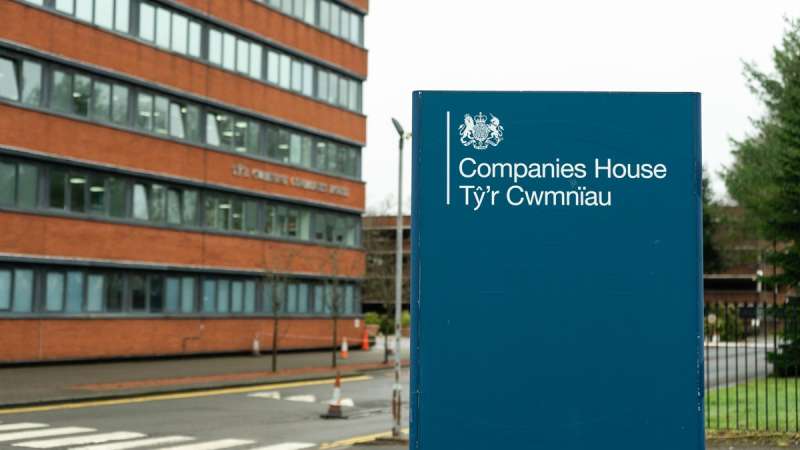Our Company Secretarial Service
It is the responsibility of the directors and company secretary (if one has been appointed) to ensure that the Statutory Books and Registers are accurately maintained and that the relevant documents and forms are filed at Companies House. Failing to do so may constitute an offence and give rise to fines.
We can assist you with any kind of company secretarial matter, from reconstituting lost statutory books, advising on meetings and procedure, drafting board minutes and resolutions to assisting with the filing of routine documents at Companies House (online and in paper format).
We can assist you with the formation of new companies and produce statutory books and company registers.
We can also assist you with restoring Companies to the Companies House Register which have previously been struck off or removed. Find out more about our Company Restoration services.
Companies House and statutory requirements
A large amount of company information is required to be filed at Companies House to keep company records up to date. These include:
- Changing the company name, registered office or accounting reference date;
- Appointing or removing a director/secretary;
- Allotting shares and varying the rights attached to shares;
- Registering a mortgage or charge against company property; and
- Annual confirmation statements.
Keeping up to date with requirements is important as failing to make necessary filings on time may result in the committing of an offence and can make the company and its officers liable to a fine.
Board Meetings
Board meetings are regular meetings of the board of directors who will act collectively to make decisions on issues affecting the company. Decisions will normally require the consent and approval of the board of directors before they can be actioned. Voting, procedure and conduct are usually governed by the company’s articles of association.
Minutes of the meeting must be taken (and retained for at least 10 years). As well as this being a legal requirement, minutes can act as evidence of factors considered by the board and record the directors' views when reaching a decision.
General Meetings
A general meeting is a meeting of the shareholders of a company and is usually called if an action of the company requires shareholder approval. Usually, it will be the directors who call the meeting, however, it is possible for shareholders to force the directors to convene a general meeting, should they see the need to do so.
As with board meetings, it is important to read the company’s articles of association prior to calling a general meeting to ensure that the correct procedure, notices and timeframes are adhered to.
Shareholder Resolutions
Shareholder decisions are made by passing resolutions. Resolutions can either be an ordinary resolution, which is passed by a simple majority of those shareholders who are present or a special resolution which is passed by a 75% majority.
Unless the articles of association or the Companies Act 2006 require anything different, an ordinary resolution will be sufficient for all routine decisions. Matters that are less routine or of more importance, such as changes to the articles of a company, will require a special resolution.
Shareholders of a private limited company can agree to a resolution without holding a meeting by way of written resolution, and as a result, there is little reason ever to hold a shareholder meeting for a private company (save in certain circumstances, for example, to remove a director).
Our Company Secretarial Experience
Our ethos is to provide our clients with an alternative to the major regional and national firms by offering high-quality legal advice from highly experienced, specialist solicitors, but on a much more cost-effective basis.
We work closely with our clients to ensure that we provide accurate legal advice to suit your circumstances. Our Corporate and Commercial Solicitors have been ranked Top Tier by the Independent Legal 500 directory, so you can be reassured that you will receive high-quality service from some of the best Commercial Solicitors in the country.
As standard practice, we are transparent with costs from the outset and provide an estimate for each piece of work we undertake. We strive to provide continuous communication to keep you updated on costs on a regular basis. We can also provide different pricing models to suit your needs (for example fixed fees or retainer arrangements).
Why Work With Our Corporate Lawyers?
- We have been ranked as a Top Tier law firm by the Legal 500 for the last seven years.
- You will receive city-quality corporate law advice at regional prices.
- Price transparency - we provide our clients with an estimate at the outset of any piece of work with ongoing updates throughout the matter.
- Our 5 Corporate Partner led service ensures you receive the very best legal advice and commercially minded support.
- We have a large team with experience across a diverse variety of sectors, focused on achieving your objectives and hitting your deadlines.
- We are a full-service law firm operating from a one-site office, which means our teams communicate effectively and efficiently and our Corporate Lawyers can draw on support from other specialist lawyers such as property and employment lawyers.
- Our Corporate Solicitors use the latest technology to ensure that we are working as efficiently as possible and that geographical distance is no bar to us from providing you excellent client service.
- We were the winners of ‘Corporate Team of the Year 2021’ at the Manchester Legal Awards.
- Take a look at the Myerson Promise for further benefits of working with us here.
Testimonials
Meet Our Specialists
Home-grown or recruited from national, regional or City firms. Our specialists are experts in their fields and respected by their peers.
Contact Our Experts
You can contact our lawyers below if you have any more questions or want more information:






